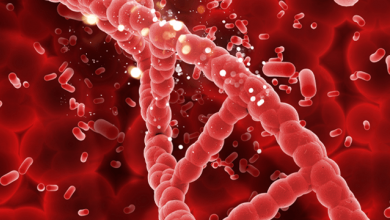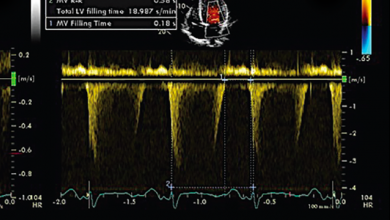Search results
Author(s):
Robert H Christenson
Added:
3 years ago
Accurate and timely biochemical marker testing for aiding the diagnosis of myocardial infarction (MI) has been important for the appropriate disposition and treatment of patients for the past several decades. Creatine kinase (CK) muscle and brain (CK-MB) mass and myoglobin measurements were the standard up to the mid-1990s, when assays for the cardiac-specific isoforms of troponin I and troponin…
View more
Justin Beilby
Job title: Deputy Vice Chancellor Research
Author
Author(s):
Debra Green
,
Jack E Ansell
,
Stephan Moll
Added:
3 years ago
Oral anticoagulants are one of the most common causes of drug-induced adverse events.1 Expert dose management, which keeps the patient within a narrow therapeutic international normalized range (INR), is required to avoid adverse events and optimize therapy. Anticoagulation clinic (ACC) management has been shown to improve outcomes compared with the routine management provided by physicians,2 but…
View more
Author(s):
Rita Paniccia
Added:
3 years ago
The goal of platelet function tests used in cardiac catheterization laboratories and intensive cardiac units is to guide antiplatelet therapy to the optimal dose for the prevention or treatment of thrombosis, minimizing hemorrhagic side effects in acute coronary syndrome (ACS) patients undergoing percutaneous coronary intervention (PCI).1–4 Platelet function tests measure the platelet capacity to…
View more
Cardiac Markers—Facilitating Diagnosis and Exclusion of Patients with Acute Coronary Syndrome
Author(s):
Judd E Hollander
Added:
3 years ago
Article
Author(s):
Athanasios Moulias
,
Angeliki Papageorgiou
,
Dimitrios Alexopoulos
Added:
2 years ago
Amino-terminal Pro-B-type Natriuretic Peptide Testing - Past, Present, and Future Applications
Author(s):
Shanmugam Uthamalingam
,
James L Januzzi
Added:
3 years ago
Article
Author(s):
Shahana Uddin
,
Rathai Anandanadesan
,
Richard Trimlett
,
et al
Added:
1 year ago
Author(s):
James L Januzzi
Added:
3 years ago
The use of natriuretic peptide testing has dramatically risen recently, in recognition of the value of these blood tests for assisting in the evaluation of patients with suspected heart failure (HF). B-type natriuretic peptide (BNP) is formed as a consequence of production of a 108-amino-acid precursor peptide that is synthesised within the cardiomyocyte; this 'pro-BNP108' is subsequently cleaved…
View more
Author(s):
James L Januzzi
Added:
3 years ago
The use of natriuretic peptide testing has dramatically risen recently, in recognition of the value of these blood tests for assisting in the evaluation of patients with suspected heart failure (HF). B-type natriuretic peptide (BNP) is formed as a consequence of production of a 108-amino-acid precursor peptide that is synthesised within the cardiomyocyte; this 'pro-BNP108' is subsequently cleaved…
View more












